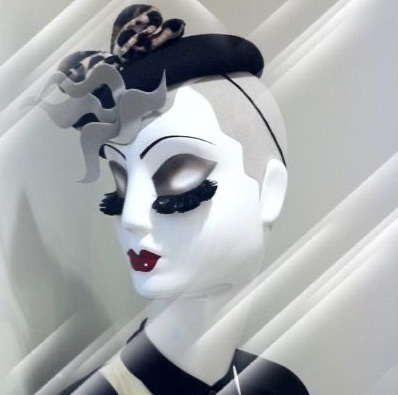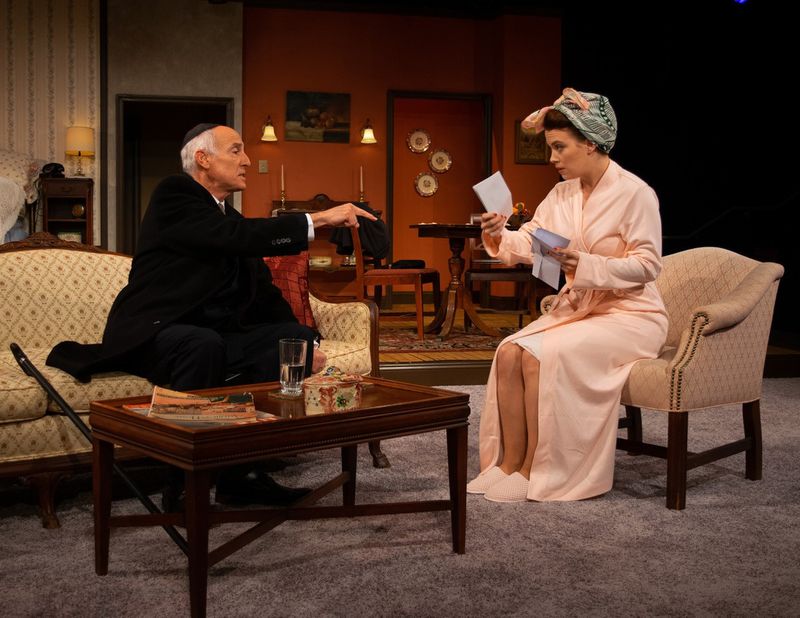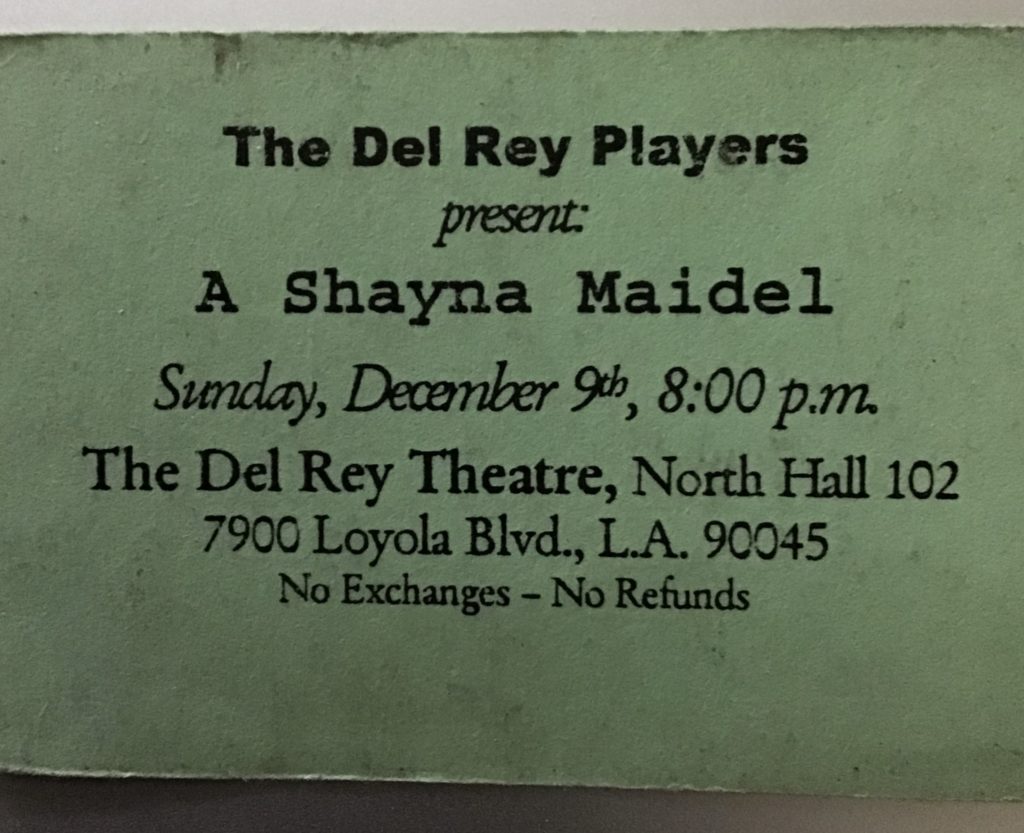Mannequin Monday – Two Sisters, Two Strangers

“You can’t put life on a piece of paper. Or love.” A mother facing death in the concentration camps writes to her daughter Rose, who escaped to America. This week Mannequin Monday explores the play A Shayna Maidel, by Barbara Lebow. We dress our mannequin with the power of dialogue.
And, as always, I offer a short story of my own. This week it’s a character sketch of Kelsey Graf, one of the key players in several of my books.
This Week’s Story

This week I re-read the script for Barbara Lebow’s 1988 play, A Shayna Maidel. Yiddish for a pretty girl. The story is set in 1946, in Rose Weiss’s New York City apartment. Rose re-unites with her older sister Lusia, after being separated years ago, when Rose was four. Their father took Rose to America, leaving his wife and Lusia behind in Poland. Lusia came down with scarlet fever and could not travel. Events interfered with Lusia and her mother following the other two to America. In the ensuing rise of Nazism and the Holocaust, only Lusia survived till liberation. There was no word on the status of her husband Duvid.
Now, post-war, Lusia has made her way to New York. She will stay with Rose. They have not only grown up apart, they have no knowledge of the life each has lived till this moment of reunion. Rose is a New Yorker, enjoying all the benefits of the city. In Poland Lusia had married, borne a child, endured unspeakable horrors. She still searches for knowledge of her husband.

About twenty years ago I attended a performance of A Shayna Maidel at Loyola Marymount University. The play, produced by the school’s student theater company, took place in a small black box venue on campus. To this day I can see scenes from the performance in my memory. It was a stunning production of a cathartic script. I still carry the ticket stub in my wallet to remind me of that experience.
Playwright Raegan Payne said of play writing in an interview: “I like being forced to tell a story with just dialogue and almost no resources. It’s a poor man’s art form, anyone can do it, that’s what I love.” This play does exactly that. Tells a story with dialogue and a sparse set. The power of the story gets right up the face of the audience and does not let go.
A Shayna Maidel is a challenge to produce well. But if you can find a performance near you, it is well worth the price of a ticket. You will not forget the experience.
My Current Writing
This is a character sketch for Kelsey Graf, an LGBT actor featured in several of my books. Kelsey, in her early twenties, has conflicting career roles: actor, film director, camera operator. I’m experimenting with what might fit for her as she continues in more of my stories.
I Feel Different
Kelsey Graf sat alone in the back row of a small black box theater, gazing at an empty stage. The theater was dark save for the dim light of two wall sconces on the side of the house.
The first read-through for the play she had been cast in finished an hour ago. Not a critical darling or role, but it was work. Sounds of conversation and laughter from the last ones to leave leaked into the theater.

For years Kelsey has dreamed of playing Rose Weiss in the play A Shayna Maidel. She leaned back. Closed her eyes. Her hands gripped the seat armrests, her fingers tracing the scratches in the wood. Scars embedded in the wood. Now a part of the theater itself. Its history. Scars made by crew hanging lights above. Carved by a bored patron. Inflicted by so many audience purses, coat zippers.
Kelsey stood. She at moved to the aisle and walked down to the front row. She stepped up onto the stage. She breathed in the possibilities. This was the space that transformed. Breathed life into words on a page. She let her arms hang loose, felt the presence of so many actors that had brought their characters to life.
The smells of dust, faint traces of paint, of sweat tinged the air. A flicker of light caught Kelsey’s eye, a gleam where the floor met the wall. Bits of glitter from a recent performance. Maybe a dance show.
She smiled. She knew dancers. Knew how they found glitter on their clothing, in their apartments, months after a performance. The stuff never died.
Kelsey stood center stage. Turned to face the house. Even a house full of empty seats sparked a nervous energy. That first moment of a performance. The moment when you wonder if any lines will come out of your mouth. The moment when you see dozens of faces looking at you. Intent. Expectant.
For a moment a dream flashed through her mind. A recurring dream. Her, standing up on a stage, the audience waiting. She has not seen a script. Has no idea what her lines are. Does not know the blocking the director has assigned. Helpless. Kelsey swung her arms, shook off the dream.
From memory Kelsey pulled up a scene from the play. Rose entered the apartment after picking up her older sister at the Hebrew Immigration Aid Society. After so many years apart, they were strangers. Rose came to America with her father when she was only four years old. Lusia remained behind in Poland with her mother, because Lusia had scarlet fever. Their father worked to save money so that they could follow to Brooklyn.
The Great Depression, tightened immigration rules, World War II prevented the mother and Lusia from traveling to America. There were letters, until the War, and then silence.
In those years Lusia had married, borne a child, and then suffered the unimaginable in the Nazi camps. She survived till the Allied liberation. Her mother and child died in the camps. Her husband – no one knew.
Now Lusia will stay with Rose. Two sisters reunited, each alone in her own life.
Kelsey felt her legs and arms tingle. Felt Rose’s awkwardness in the scene. Kelsey saw herself in Rose. Saw herself as anxious, overly talkative.
Kelsey imagined the conversation between Lusia and Rose at the kitchen table. Lusia is surprised Rose does not remember their mother. Kelsey whispered a line from Rose, as she pictureed herself serving food to Lusia: “I was only four when we left. It’s so strange that you have memories of me, that I was part of your life. That I was born in another world.”
Kelsey pictured herself putting a plate in front of Lusia. “I don’t remember any of it. Just a feeling, maybe. Sometimes there’s a particular smell when something’s cooking or a song comes on the radio and all of a sudden I feel different, like I’m in another place.”
Kelsey moved stage right, to Rose’s bedroom. She leaned down, spread her hands as she pretended to smooth the covers on her bed. She cuddled to her chest the stuffed doll carried by Lusia from a deserted home just outside the liberated concentration camp.
Kelsey knelt. Felt the hard floor against her knees. She extended her left wrist. Those fingers clenched into a fist. She scraped the fingernails of her right hand along the left wrist. Scraped over the number she had seen tattooed on her sister’s wrist. Kelsey’s face contorted in solidarity with Rose’s. Furrows creased her forehead in imagined pain.
Rose knew nothing of the camps. Of what her family had suffered in those camps. What she knows so well is this wonderful life she now has in New York because her father brought her here years ago.
Kelsey raised her left wrist, fingers splayed to the sky, as tears rose up, running down her face.
Why was I not the one to stay behind? Who is this God we pray to?
Kelsey stood.
She whispered, Rose, we are one.
***
Leave a Reply